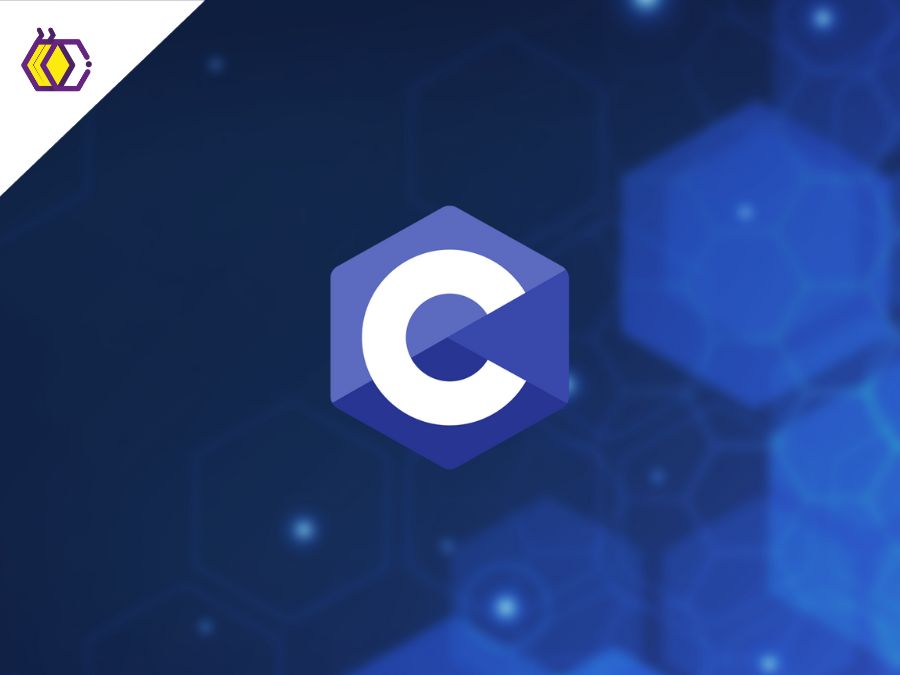

C Language
(7 minutes of reading) Venturing into programming is like embarking on a journey full of challenges, discoveries, and improvements. In this vast universe of programming languages, one choice that many developers consider crucial is the C language. Let's explore the reasons why this language continues to be so relevant and inspiring for those looking to master the art of coding. If there is one programming language that can be considered the backbone of the programming world, it is the venerable C language. Since its birth in the laboratories of Bell Labs in the 1970s, C has been a solid choice for developers seeking performance, control, and efficiency. HISTORY C emerged as an improvement on the B programming language, originally developed by Ken Thompson. Dennis Ritchie led the team that gave birth to the C language, making it an essential piece in the creation of the UNIX operating system. Over time, C's popularity grew, and its influence extended to many other modern programming languages. SIMPLICITY AND POWER One of the distinguishing characteristics of C is its simplicity. The language offers a relatively small set of keywords and constructs, making it easy to learn and understand. However, behind this apparent simplicity lies incredible power. C allows fine control over system hardware and resources, making it ideal for low-level programming and embedded systems. C programming language stands out for its elegant and straightforward syntax, an attribute that permeates its essence and contributes to the lasting reputation it has earned since its inception. The apparent simplicity of the language is not just a matter of aesthetics, but a fundamental characteristic that lays a solid foundation for advanced programming learning. By presenting a lean set of constructs, C offers an accessible entry for those new to coding, allowing them to quickly grasp fundamental principles. However, behind this apparent simplicity lies a depth that challenges even the most experienced developers. The economy of words in C syntax is not just a matter of efficiency, but an opportunity for programmers to explore the foundations of computation. The C language invites its users to delve into the fundamentals, encouraging a deeper understanding of computational processes and providing a robust foundation for building more complex solutions. C development goes beyond simply writing code; is an intellectual journey that challenges preconceptions about the relationship between simplicity and depth in programming. Choosing C as your development language is opting for a tool that not only facilitates efficient program creation, but also opens the doors to continued and rewarding exploration of the fundamental principles of computer science. UNBEATABLE PERFORMANCE If you are looking for optimized performance, C is the right choice. Its execution efficiency and direct memory access enable the creation of fast and effective programs. For this reason, many operating systems, compilers, and interpreters are written in C. C's exceptional performance is a feature that makes it irreplaceable in many development contexts. The language is practically synonymous with efficiency, thanks to its straightforward execution and direct memory access. This proximity to the hardware enables developers to optimize their programs to achieve higher levels of speed and effectiveness. Behind the scenes in operating systems, C plays a crucial role, providing the agility needed to handle the essential operations that keep a system running. C's dominant presence is also notable in applications that demand high-level performance, such as games and large-scale data processing. In environments where every millisecond counts, C stands out, offering a conducive environment for implementing complex algorithms and efficient data structures. The ability to directly manipulate memory allows programmers to avoid additional layers of abstraction, resulting in leaner, faster code. This emphasis on uncompromising performance establishes C as the preferred choice for developers who not only seek efficiency, but who also require granular control over the execution of their programs. Whether building robust systems or creating applications aimed at maximum performance, C continues to be the language of choice for those seeking excellence in software implementation. VERSATILITY C's versatility is evident in its wide range of applications. From operating systems to game development to embedded systems software and even the foundations of modern programming languages, C has left its mark on virtually every sector of computing. The versatility of the C transcends borders, covering an extraordinary diversity of applications in the field of computing. Its impact is visible from the foundations of the most fundamental operating systems to elaborate game development environments. The flexible nature of C makes it a natural choice for software development on embedded systems, where limited resources and efficient performance are essential. In this context, C plays a crucial role in embedded devices such as microcontrollers, providing the efficiency needed to operate in constrained environments. C's influence is not just limited to direct code execution, but also extends to the foundations of many modern programming languages. Many of C's fundamental constructs and concepts are incorporated into subsequent languages, highlighting its lasting contribution to the evolution of programming. Thus, developing skills in C not only opens doors to a diverse range of projects, but also imparts a deep understanding of the principles that underlie most contemporary programming languages. C's ubiquity in computing is a testament to its adaptability and continued relevance. Whether creating robust systems, crafting immersive gaming experiences, or influencing the DNA of modern languages, C continues to be an unshakable pillar in the vast programming ecosystem. CONTROL AND POWER The hallmark of C, which truly makes it stand out among programming languages, is the level of control it grants the programmer. This unique ability to directly manipulate memory and system resources gives it unmatched power, providing freedom that allows developers to achieve an exceptional degree of efficiency. This precise control is especially valued when dealing with embedded systems development, where resources are limited, and each operation must be performed with maximum efficiency. When venturing into the development of hardware drivers and other low-level applications, C puts the developer in the driver's seat, granting him not only control but also direct responsibility over the operation and optimization of critical components. This fine-tuning capability is essential to ensure that software interacts smoothly with the underlying hardware, resulting in more efficient and reliable systems. OC, therefore, not only empowers developers to create high-performance software, but also fosters a deep understanding of the interaction between software and hardware, consolidating itself as the ideal choice for projects that demand precision and optimization. C's ability to put the developer in direct command of system resources not only highlights its practical utility, but also distills a deep understanding of computer architecture. This unique feature solidifies C's position as an indispensable language for projects that require tight control over hardware and thorough performance optimization. ADAPTABILITY The versatility of C is remarkable. From the development of operating systems to embedded applications, scientific software projects and business applications, C stands out in a variety of scenarios. Its impact can be felt in many modern programming languages, as many of them have been influenced by the principles and concepts of C. ACTIVE COMMUNITY AND ABUNDANT RESOURCES The C learning journey is enriched by the active community of developers. Online forums, expert blogs, and educational resources provide ongoing support. There are countless books that serve as reliable guides, while online tutorials and open-source projects provide hands-on opportunities to hone skills. CONCLUSION Despite the emergence of more modern languages, C remains a solid choice for developers seeking a balance between simplicity and power. Its influence is profound and lasting, and an understanding of C continues to be an asset for any serious programmer. If you haven't yet delved into the world of C, perhaps it's time to explore its nuances and discover for yourself why this language continues to be an unwavering force in the field of programming.
Share this article on your social networks:
Rate this article:
[yasr_visitor_votes size=”medium”]



